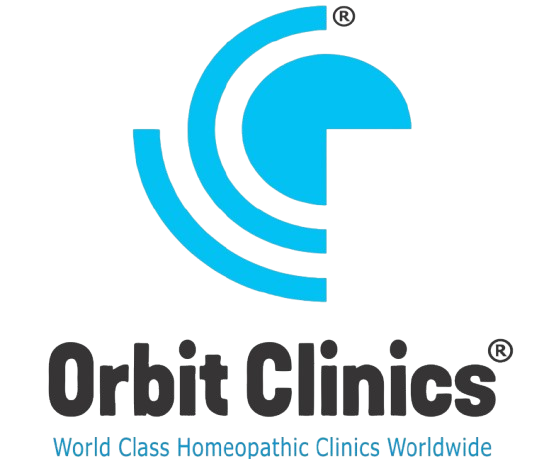Autism Spectrum Disorder & Homeopathy
Introduction
ASD (Autism spectrum disorder) is defined as a developmental disorder that affects communication and behaviour which is found commonly in children as well as in adults now. It can be diagnosed at any age, but symptoms generally appear in the first two years of life.
Common Observations:-
- The first observation may be difficulty in communication and interaction with other people.
- Restricted interests in most common games or activities
- Repetitive behaviours observed by parents
- Symptoms that affect the child’s ability to function properly at school, work and other areas of life
This can affect any ethnic, racial or economic group.
It can be a lifelong disorder but treatment can improve the patient’s symptoms and ability to function.
Signs and Symptoms of ASD:-
Following signs and symptoms can be seen–
Social communication / interaction behaviours may include
- Making little or no eye contact.
- Tending to not listen or look at people.
- Failing to respond someone calling their name or to other verbal attempts made by people around.
- Often talking at length about a favourite subject without noticing others’ interest
- Mismatched facial expressions, movements and gestures to what they actually want to say
- Having an unusual tone of voice that may sound like a song or robotic.
- Having trouble conveying one’s and understanding other’s point and actions
Restrictive / repetitive behaviours may include-
- Having an intense interest in certain topics like details of everything, numbers and facts.
- Repeating a certain behaviour or having unusual behaviours, like repeating words or phrases (echolalia)
- Having overly focused interests such as about moving objects or parts of objects.
- Getting very upset by slight changes in the routine.
- Being more sensitive than other people to sensory stimuli such as light, noise, clothing or temperature
- People with ASD may also experience sleep disorders and irritability.
People with ASD may experience many challenges, but they have been known to exhibit strengths like:
- Ability to learn details and remember information for longer periods of time.
- Being strong visual and auditory learner.
- Excelling in math, science, music or art.
Causes and Risk Factors
There is no known cause of ASD but research suggests that genes can act together with influences from environment to affect foetal development in ways that can lead to diseases like Autism.
Other risk factors include:
- Having a sibling with ASD
- Having older parents
- Having certain genetic conditions such as Down’s syndrome, Fragile -X-syndrome, and Rett syndrome
- Extremely low birth weight
Diagnosis
ASD can usually be reliably diagnosed by the age of two by Observing the child’s behaviour and development.
Making a diagnosis is often a two-stage process
Stage 1:
General Developmental Screening during Well-Child Check-ups
Every child should receive well-child check-ups with a paediatrician or an early childhood health care provider. Paediatrician recommends that every child be screened for developmental delays at their 9, 18 and 24 or 30-month well-child visits and specifically for autism at their 18 and 24-month well-child visits.
Additional screening might be needed if a child is at high risk for ASD or showcasing developmental problems.
Children who show developmental problems during this screening process will be referred for a second stage of evaluation.
Stage 2:
Additional Evaluation
This evaluation is conducted by a team of doctors and other health professionals who are experienced in diagnosing ASD.
This team includes:
- A developmental paediatrician—a doctor who has special training in child development
- A child psychologist and/or child psychiatrist—a doctor who has specialized training in brain development and behaviour
- A neuropsychologist—a doctor who focuses on evaluating, diagnosing and treating neurological, medical and neurodevelopmental disorders.
- A speech-language pathologist—a health professional who has special training in diagnosing communication difficulties
- The evaluation may assess:
- Cognition
- Communication skills
- Age appropriate skills needed to complete daily routine activities independently, such as eating, dressing and toileting.
The comprehensive evaluation may include:
- Blood tests
- Hearing test
Diagnosis in older children and adolescents
ASD in older children and adolescents who attend school are often first recognized by parents and teachers and then evaluated by the school’s special education team.
The school’s team may advise these children to visit their primary health care doctors who specialize in ASD for additional testing.
Parents may talk with these specialists about their child’s social difficulties including problems with subtle communication. These subtle communication issues may include problems understanding figures of speech, tone of voice, facial expressions or body language.
Diagnosis in adults
Diagnosing ASD in adults is often more difficult than diagnosing ASD in children.
In adults some ASD symptoms can overlap with symptoms of other mental-health disorders, such as anxiety or Attention Deficit Hyperactivity Disorder (ADHD).
Adults who notice the signs and symptoms of ASD should talk with a doctor and ask for an ASD evaluation. Also, testing for ASD in adults is still being refined. Adults can be referred to a neuropsychologist, psychologist or a psychiatrist who has experience with ASD.
Treatments and Therapies
ASD treatment should begin as soon as possible after diagnosis.
Early treatment for ASD is important, as proper care can reduce individuals’ difficulties while helping them learn new skills and strengths.
Autism treatment includes intensive, sustained special education programs and behaviour therapy early in life.
Available approaches for autism treatment include –
- Applied behaviour analysis
- Structured teaching
- Developmental models
- Social skills therapy
- Speech and language therapy
- Occupational therapy
Many medications are used to treat ASD symptoms in conventional medicine that interfere with integrating a child into home or school environment, when behavioural treatment fails.
There are many alternative therapies that parents often opt to treat their autistic children. Also, child needs speech therapy, occupational therapy etc.
Alternative therapies include
- Homeopathy
- Ayurveda
- Naturopathy
- Hydrotherapy
- Orthomolecular medicine
Homeopathic treatment for Autism
Homeopathy is one of the most popular alternative systems used worldwide.
Homeopathic Medicines work well on the basis of symptoms and individualisation. Here are few of those medicines with their effects:
- Belladonna
Changes observed – Improvement in social skills, reduction in head banging, usage of full sentences with 2-3 words to communicate, improvement in understanding.
- Lycopodium clavatum –
Changes observed – Improved communication, appetite, social smile, more active and responsive
- Silicea-
Changes observed – Fear and sensitiveness to noises reduced
The other remedies commonly prescribed –
Pulsatilla nigricans, Natrum muriaticum, Calcarea sulph, Sulphur, Tarentula, Ignatia, Lachesis
Overall results observed after Homeopathic treatment
- Reduction in hyperactivity
- Improvement in sitting tolerance/attention span
- Improvement in sensory perceptual skills
- Better & appropriate expression of emotions
- Improvement in both fine motor & gross motor abilities
- Improvement in social skills like eye contact
- Improvement in speech, language & communication skills
- Reduction in anxiety states/temper tantrums
- Better sleep patterns
Questions usually asked by Parents looking for Autism treatment are –
Can autism be cured permanently?
Is autism curable by homeopathy?
Role of Homeopathy needs to be understood in cases of Autism
Homeopathy is a safe and gentle system of healing, which identifies the root cause of any problem by way of detailed case history, including the current complaints, past medical history, family history, nature and disposition of the patient and many other finer factors.
Classical Homeopathy is the best school of Homeopathy. When a classical homeopath is consulted for the treatment of an autistic child, he/she will note consider full case history in detail. This include child’s current medical complaints, their onset, modalities, past medical history, mother’s history during pregnancy, exploration of any stress points, family history or causes for current illness and a detailed assessment of child’s mental and emotional makeup.
Homeopathic medicines can bring significant improvement in cases with mild to moderate autism. Though, children with severe autism show limited improvement. The medicines address sensory issues, speech delay general development delay and hyperactivity, bringing positive changes in majority of autistic children.
CEASE Therapy
CEASE (Complete Elimination Autism Spectrum Expression) therapy is a form of Homeopathic treatment for autism, which was developed by Dutch physician, Tinus Smits who was looking for a way to help autistic children.
Dr Smits helped over 300 children prior to his death in 2010. While his method was originally designed for children with autism, he experienced success treating a number of conditions including MS, Chronic Fatigue, allergies, ear infections, hyperactivity and detoxification.
In CEASE Therapy, step by step all causative factors (vaccines, regular medication, environmental toxic exposures, effects of illness, etc.) are detoxified with the homeopathically prepared, i.e., potentized medicines.
Behavioural, psychological and educational therapy
People with ASD may be referred to specialists who provide behavioural, psychological, educational or skill-building interventions.
These programs are highly structured and may involve parents, siblings and other family members. This might help patients-
- Learn life-skills necessary to live independently
- Reduce challenging behaviours
- Increase or build upon strengths
- Learn social communication and language skills
Other resources
Some tips for finding the additional resource services that can help people with ASD:
- Contact a doctor, local health department or autism advocacy group to learn about special programs or local resources.
- Find an autism support group. Sharing information and experiences can help individuals with ASD and/or their caregivers learn about treatment options and ASD-related programs.
- Record conversations and meetings with health care providers and teachers.
- Keep copies of doctors’ reports and evaluations. This information may help an individual qualify for special programs.
Role of diet and nutrition
Vitamin B, Vitamin C, Zinc and Fish oil helps in treatment of ASD. Casein free and Gluten free diets have also been suggested by many doctors.
But, do consult your physician before making any dietary modifications.




